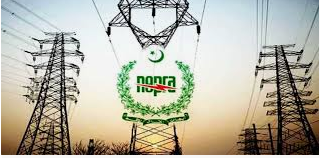Islamabad (Web Desk): The National Electric Power Regulatory Authority (NEPRA) has announced a reduction in electricity rates for consumers nationwide through the monthly fuel charge adjustment (FCA), as confirmed by official notifications released on Thursday.
Consumers of K-Electric (KE) will see their rates drop by Rs3 per unit, while consumers in other regions of the country will experience a reduction of Rs2.12 per unit. This price cut will be reflected in electricity bills for the month of March.
For K-Electric, the price reduction is based on the December 2024 adjustment, whereas for other areas, the adjustment applies to the January 2025 period.
However, the FCA reduction will not apply to certain groups, including lifeline consumers, domestic users consuming up to 300 units, electric vehicle charging stations, prepaid customers, and agricultural connections.
Additionally, domestic consumers with Time of Use (ToU) meters will also benefit from this reduction, regardless of their consumption level.
The FCA mechanism adjusts power tariffs in response to changes in fuel costs, with reductions when fuel prices drop and increases when they rise. NEPRA has also instructed distribution companies (Discos) to comply with court rulings concerning the implementation of the FCA.
The recent tariff reductions come at a time when high electricity prices have been a significant burden on the public, contributing to social unrest and causing financial strain on industries.
These high tariffs have been a major factor in the country’s economic slowdown, with Pakistan’s economy contracting twice in recent years, primarily due to rising inflation.
The government, under the terms of an agreement with the International Monetary Fund (IMF), has had to increase electricity rates to manage public debt and address the chronic financial issues within the power and gas sectors.
The IMF has pointed out severe liquidity issues in the energy sector, with growing arrears and recurrent power outages.
Arrears, a form of public debt that accumulates due to unpaid bills and subsidies, played a significant role in the negotiations between the IMF and the Pakistani government, which ultimately resulted in this deal.


